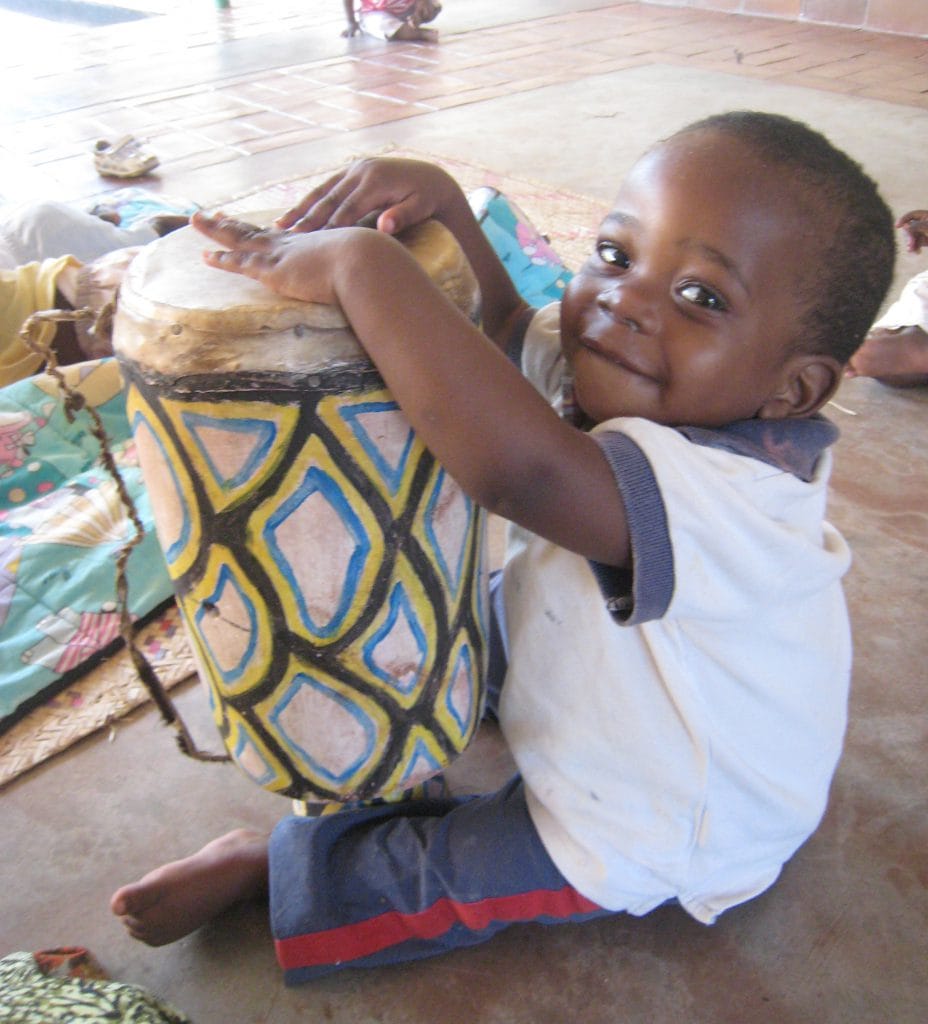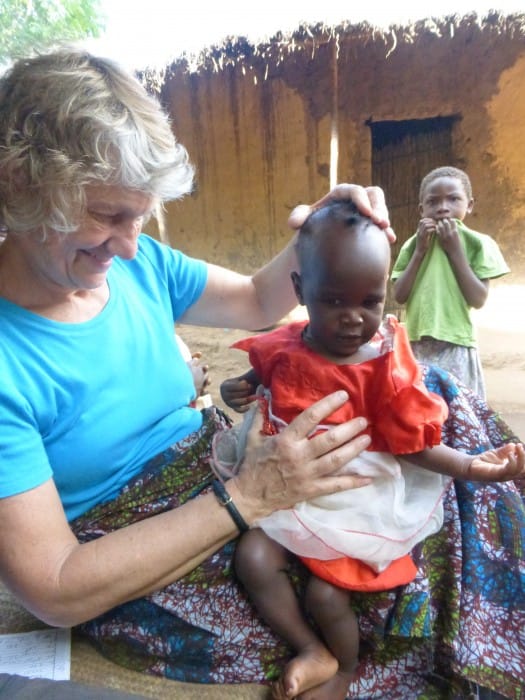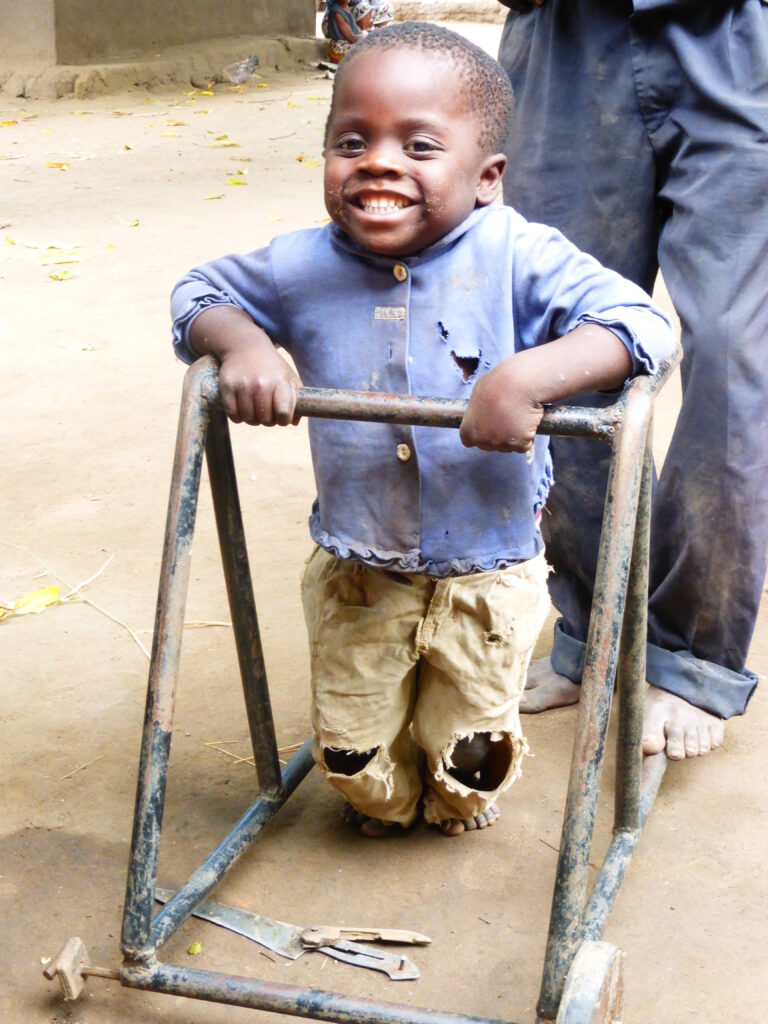History of MCV Part 4/5
NUTRITIONAL REHABILITATION PROGRAM AND OPEN ARMS
For the first few years at MCV the nutritional rehabilitation program continued to function in
a small building, serving about a dozen infants and toddlers, with a small staff of committed trained Malawian women. By 2004, 78 infant orphans had been admitted to the program and 44 had died, mostly from being born with the HIV+ at birth. Open Arms, a well-funded British nonprofit in Malawi’s largest city, Blantyre, served as a model for the MCV program, and in 2004 Open Arms provided the funding for MCV to add a dining room, kitchen, and new washroom to the original MCV building.
On Friday, July 13, 2007 at 10:30 p.m. a fire started in the kitchen of the rehab building while
21 babies were asleep. Fortunately, all were rescued unhurt as the fire raged, but the building, all of the equipment, and the program supplies were completely destroyed. It was one of the lowest points in MCV history.
Fortunately, Open Arms had plans to expand its operation beyond Blantyre. They stepped
forward with MCV’s blessing and purchased land from the local chief adjacent to the MCV campus. On this land, within steps from MCV’s now destroyed building, they constructed a first-rate rehab center, larger and better-funded that could be done at MCV. They were able to expand the care for additional at-risk infants and provided continuous training to professional staff. Several of the original MCV rehab workers still work at Open Arms.
Open Arms continues its complementary services with MCV today. They normally have between 40-50 infants and toddlers in residence, and nearly all these children now survive. Open Arms has become an invaluable partner organization for MCV. In addition to their good work with the newly born children, they have established several pre-school programs for children in some of the area’s primary schools.

MCV HEALTH CLINIC
From MCV’s beginning in 1996 until 2012 MCV operated an onsite clinic staffed by Faith
Sibale, a registered nurse. This clinic served both the orphans and the households caring for them. In 2004, the clinic registered 2,070 visits, which was a typical annual number.
Drugs for the clinic were purchased by individual donors and by US Rotary clubs. The Kansas
City Plaza Rotary Club bought more than $3,000 worth of malaria treatment drugs and had them shipped to Malawi. But the clinic was a huge job for just one nurse, and when Faith retired in 2012, MCV needed find an alternative way of serving its orphan children and their families. In anticipation of Faith’s retirement, MCV negotiated a clinic contract with the nearby Catholic Khochi Clinic and later with the nearby Muslin Clinic, which had better resources ―equipment, drugs, and a more experienced staff. Once again, the generosity of many American citizens enabled MCV to provide this outstanding health coverage for the orphan and OVC populations and their families.

THE SPECIAL NEEDS PROGRAM
Although originally MCV was focused on the large number of orphans born with little chance of a normal or hopeful life, one of our MCV Foundation Board members, Mary Pomeroy, was a strong advocate that we also needed to focus on the significant number of people in the MCV catchment area with special needs. These are vulnerable in the same sense that orphans are, so Mary, a registered pediatric physical therapist, helped MCV evolve from an orphan program to one that included the otherwise vulnerable children (OVC’s). Her work and advocacy has enriched the overall program and has given a better life to otherwise near-hopeless lives.
Abilities, not disabilities, are the focus for each individual in the Special Needs Program. When
Mary’s family first visited MCV in 2008, Down’s syndrome was not discussed. Children with motor impairments were carried on parent’s backs until they were too big when they simply stayed at
home. Few wheelchairs, walkers or even decent crutches were available. Once MCV established its Special Needs Program, the lives of people with these needs have changed dramatically. A village educational program, run by the MCV Village Outreach Coordinators Florence and Catherine, under Mary’s guidance, focused on the reality that a disability does NOT define a person. For example, the diagnosis of cerebral palsy (CP) in Malawi is frequently a result of cerebral malaria or malnutrition. Mary, being a pediatric physical therapist, taught that if parents spent attention to better nutrition and the use of bednets, it would reduce the scourge of CP. Thus the bednet campaign ties well into the Special Needs Program. In addition, an emphasis of providing more nutrition in the staple food nsima, by adding pounded ground nuts to the ground maize, mixed with water and salt to make a porridge, could become a deterrent to much of the special needs causes. Programs like this, of course, will not eliminate special needs children, but it does help decrease the scourge.
Clearly, all special needs cannot be eliminated. But through the educational and training
programs now in place in the MCV villages, parents now say “My child has abilities, not disabilities!”
In addition to these helpful preventative programs, over the past 13 years MCV’s Special
Needs Program has advanced into three areas:
- Village-Based Care: Catherine Shabani, one of our Village Outreach Coordinators, continues
to travel to 39 villages to see and encourage children (and their families) with special needs - Cerebral Palsy (CP) Clinic at MCV: A physical therapist (physio) from the nearby hospital
provides weekly therapy since 2008 to children. On average this includes 12 children per
week, thus about 50 per month and 600 annually - The Wheelchair Equipment Workshop: This is also part of the Carpentry area within the
Vocational Education Program at MCV. This workshop continuously makes wooden
standers, chairs, walkers, and wheelchairs, plus accessibility ramps for homes and schools
as well as cement washing areas for families.
The Special Needs Program continues to thrive and expand, thanks to all the gifts and donations that are received. It is now a direct part of the MCV budget, mission, and goals.
